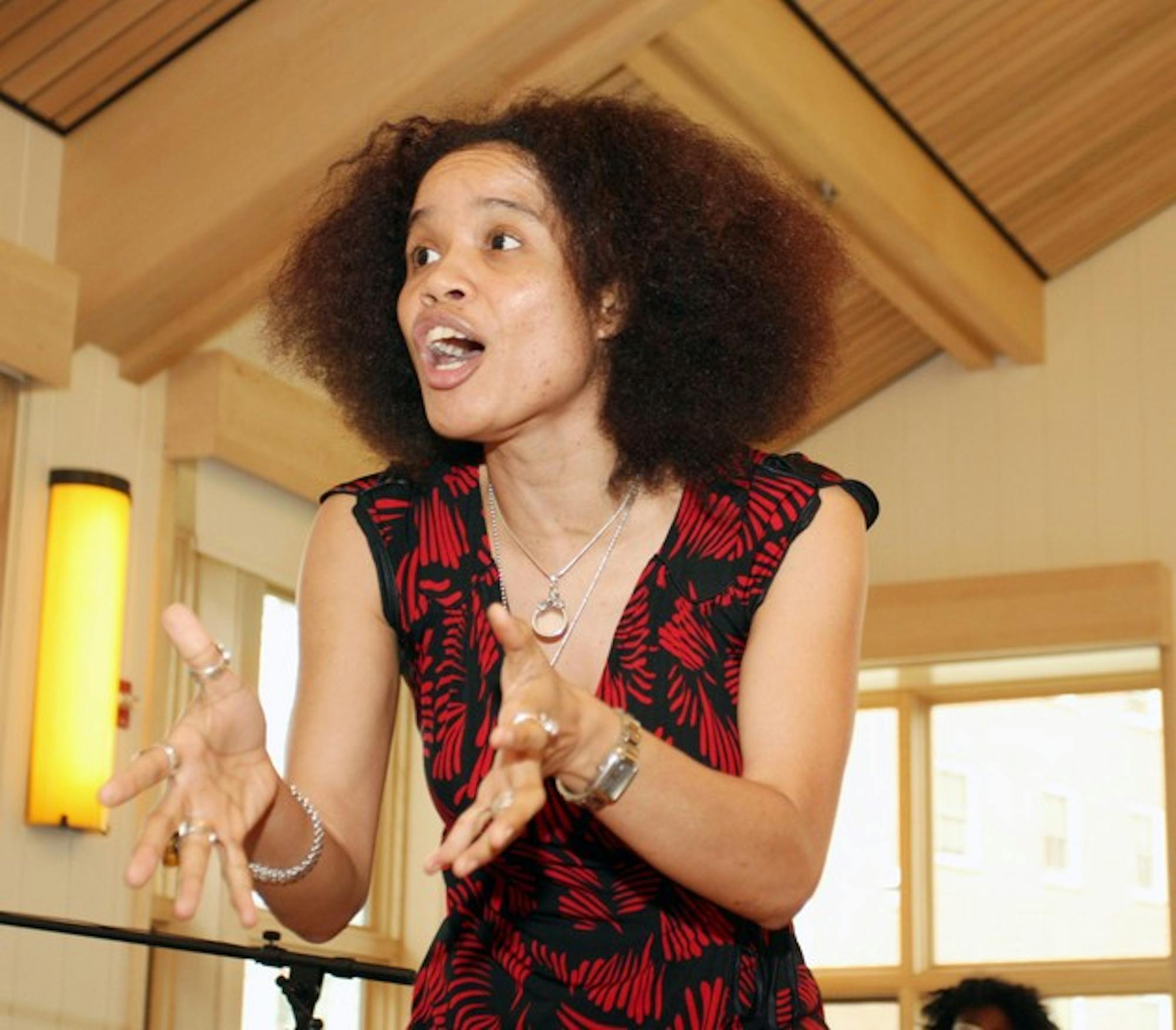Chin, who had the opportunity to sit in with students in classes, at Sexual Assault Peer Advisor training and at informal dinner and lunch discussions, said she wished to push students to take the curricular dialogue around race, class and gender issues and the respect they afford their peers within a classroom into their social and extracurricular spectra.
Chin noted a tendency for students to "play liberal" in a formal setting, but lose that respect for others when the formality is lifted.
"You have to find a way inside of yourself and say, 'You know what, the way that I treat my friend is not in congruence with my politics -- the way I treat my classmate, the way I talk to the women around me, the way I speak to the help around me' -- It has to begin with you," Chin said.
Chin opened last night's dinner with her poem, "Imagination," which mixed laugh-provoking one-liners with her overall political call for activism.
"Imagination is the bridge between the things you know for sure and the things you need to believe when your world becomes unbearable," she began.
As she continued, Chin listed manifestations of classism, racism and sexism which make the world "unbearable."
"I believe in monsters lurking under the bed because it gives our children something to conquer before the world begins to conquer them," she said.
Chin directed her dialogue mostly to women, who composed the majority of the audience of students, faculty and administrators. She emphasized the importance of understanding all oppression as functions of an overall oppressive system.
"You have to see that all of the oppressions that oppress Asian-American women, that oppress black women, that oppresses black men, that oppress straight white women, poor white women -- you have to see all of those as connected. It's all one web," Chin said.
"Everyone's working on one little area of the web, but you have to see that the system that we live under is the problem."
Chin said that activists need to make sacrifices for their cause, comparing these to the social sacrifices a student makes in preparing for a Dartmouth education, or the sacrifices a minority student might make in leaving a comfortable home community to become part of a racial minority at Dartmouth.
"People make no bones about making those sacrifices for their educations so they can get a good job, but I put the question to the social justice activists," Chin said in an interview, "how much are you willing to sacrifice for the things you believe in?"
Student activists need to be willing to risk their social and academic positions at their schools in order to stand up for the politics, Chin said in an interview.
"Let's stop being charitable and start moving towards being social justice activists," she said, arguing for good work that "is helping to deconstruct the system that actually makes it so that people don't have what they need."




